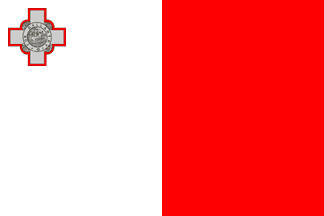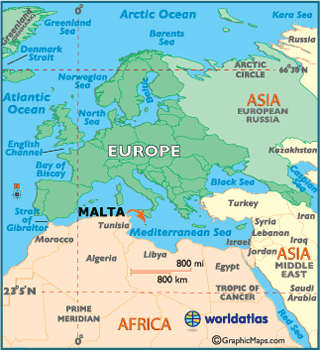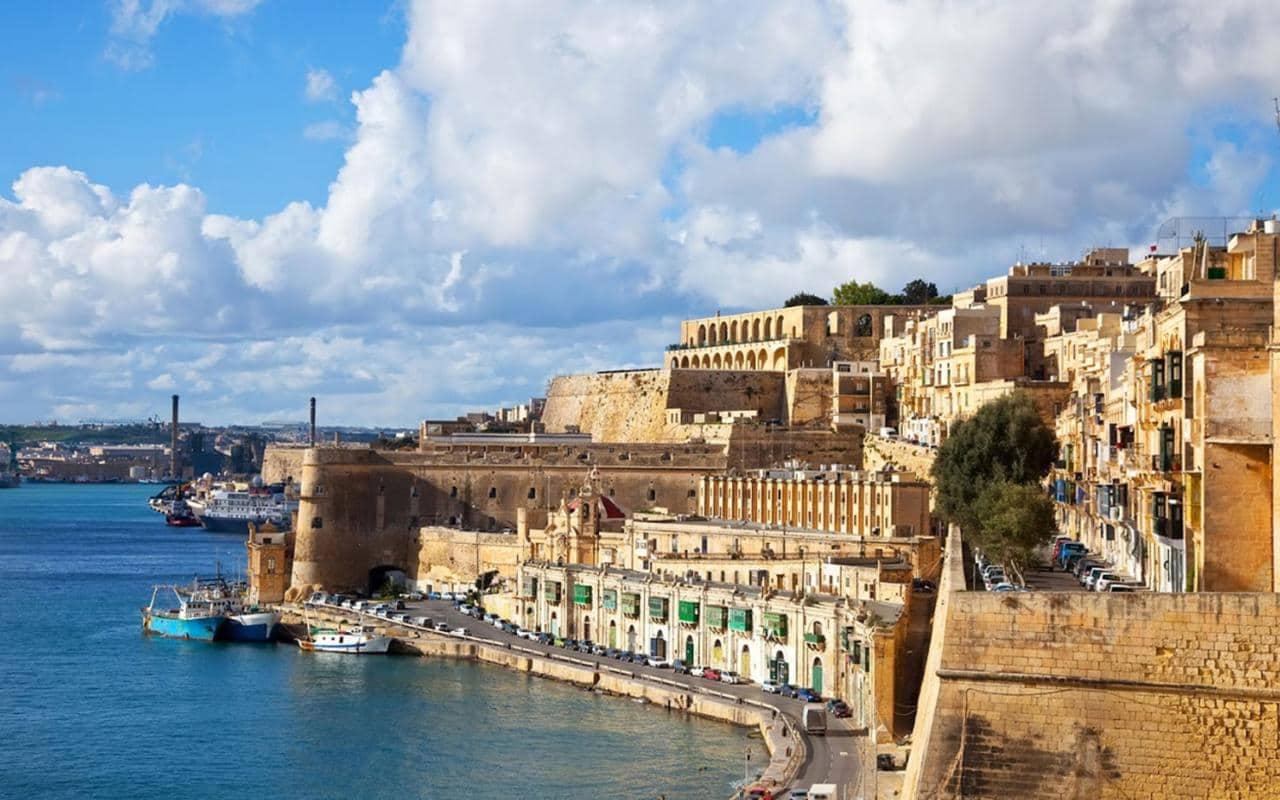Malta is an island country on the Mediterranean Sea. It is officially known as the “Republic of Malta”. Its close proximity to Sicily below the “boot” of Italy 50 miles (80 kilometers) makes it an ideal access to major European countries along with Northern Africa as it is 175 miles (280 kilometers) from Tunisia.
Malta’s land area is 122 square miles (316 kilometers) and has a population of around 450,000 makes it a densely populated island. Valletta is its capitol city whose land area is only one half square mile (0.8 square kilometers) making it the smallest capitol in the European Union (EU) which it is a member. While Maltese is the native language, English is an official language.
Malta’s corporations are regulated by laws based on the Company Law of the United Kingdom, called (The Company Act of 1995). Corporations are registered by the Registry of Companies in Malta. Since Malta is part of the European Union, some of its rules found in the Company Act in Malta meet the general requirements of the European Union, much like the other member countries.
Benefits
There are several benefits for incorporating in Malta including:
• Proximity to and EU Membership: Being located so close to Italy and Greece and being a member of the EU makes it convenient to corporations wanting to do business in the EU.
• One Shareholder: Only one shareholder is required to form a Malta corporation.
• No Income or Corporate Taxes: Malta corporations are not taxed on their worldwide income, only on revenues generated when conducting business within Malta’s borders. However, U.S. citizens and residents of countries who tax worldwide income must report all income to their tax authorities.
• No Dividends Tax: If corporations are correctly formed, they do not pay taxes on incoming dividends from subsidiaries existing outside of Malta’s borders.
Malta Corporation Legal Information
Corporate Name
Malta corporations must choose a unique name and register it. The name cannot be similar to any existing corporation names. The individual registering the name of the Maltese corporation does not need to be a resident of Malta.
Malta internet domain name (.MT) for corporations are available as long as the Malta corporation declares its right to use the domain name and agrees to abide with Copyright laws. The .MT domain name must be registered as a trademark with the Maltese Patent Office if not already registered as a corporation with the Maltese Companies Registrar.
To register a company domain name, registration applications must be filed with the Network Information Center in Malta which has the authority to accept the domain name.
Office Address and Local Agent
Malta corporations are required to have both a registered office and a registered agent. The registered office is where process service paperwork will be submitted along with official notices. In addition, the corporation is allowed to have a main office anywhere in the world.
Shareholders
Malta corporations must have at least one shareholder.
Directors and Officers
Corporations registering in Malta are required to have at least one secretary and a minimum of one director for private corporations. The board of directors manages the corporation.
Authorized Capital
Private corporations are required to have a minimum authorized share capital of 1,165 Euros.
Taxes
Malta does incur income taxes on worldwide income for its corporations and foreign companies with subsidiaries in Malta. The income tax rate for Malta corporations conducting business in Malta is 35%.
Annual Fees
The incorporation fees is called Malta Company Formation expenses, must be submitted to the Registrar of Companies as soon as the corporation is formed. Currently, they vary from a minimum of EUR 245 to a maximum of EUR 1,750, depending on the value of the Authorized Share Capital. For renewals, a minimum, annual fee of EUR 100 is payable together with the submission of an Annual Return.
Public Records
Nominee directors and shareholders are available in Malta for those company and company owners that wish to restrict public records access.
Accounting and Audit Requirements
Malta corporations do need to keep up-to-date accounting records, as outlined in the Companies Act. However, whatever accounting practices are maintained, they need to demonstrate the corporation’s financial transactions. Corporation account records need to be maintained at the corporation’s registered office. Depending on the corporation’s total revenue, financial statements can be regulated by the General Accounting Principles for Smaller Entities (GAPSE) in Malta.
In addition, the Maltese Companies Act requires corporation’s directors must demonstrate to shareholders the financial records at the corporation’s annual meeting. Financial statements need to include a balance sheet with profits and losses.
Annual General Meeting
An annual general meeting is required in Malta. During this meeting, the corporation must nominate and elect its auditors and directors, and have financial records approved by the shareholders.
Time Required for Incorporation
The time required for incorporation can vary depending on corporation’s type, as well as, the correct production and timely submission of corporate documentation. If the company registration is completed effectively, it can take as little as 48 hours for a company to complete the incorporation process.
Shelf Corporations
Shelf corporations are available in Malta for faster incorporation.
Conclusion
Malta corporations enjoy several benefits including: Malta’s close proximity to Europe and its EU membership, only one shareholder required to form a corporation, no corporate tax and no income tax on profits earned outside of Malta, and no dividends tax.






